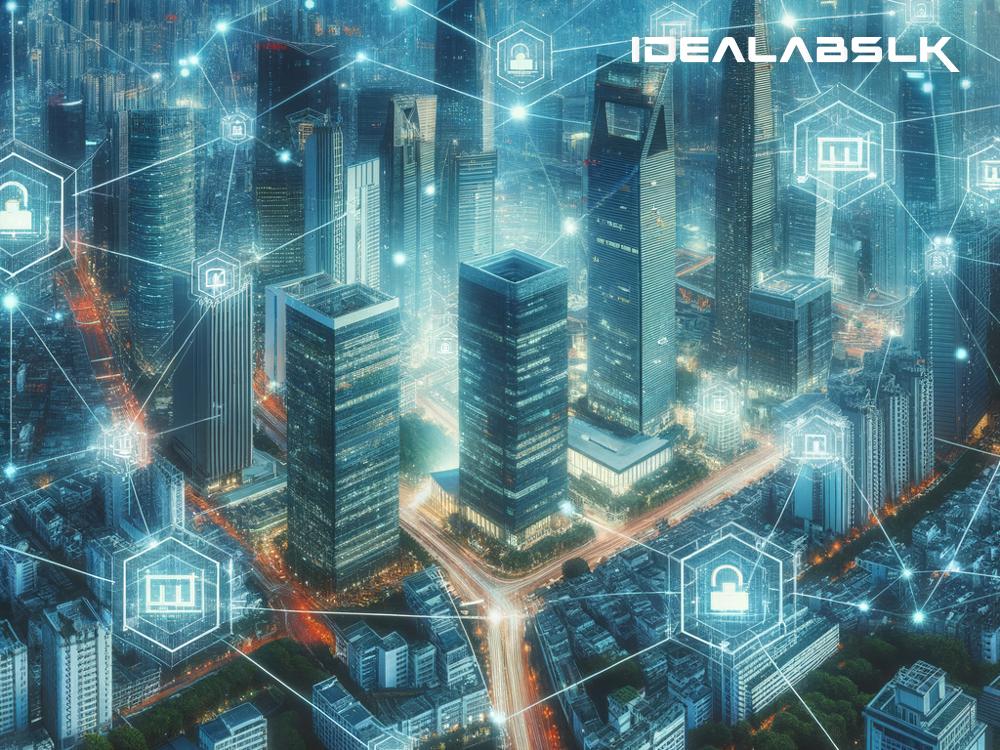Blockchain for Real Estate: Revolutionizing Commercial Property Investments
In the bustling world of commercial real estate, where skyscrapers are as plentiful as the dreams that fill them, a quiet revolution is brewing. This revolution doesn't come with the sound of construction but with the gentle clicks of computers. It's called blockchain, and it's set to change the way we invest in commercial properties. But what exactly is blockchain, and how does it fit into the world of real estate? Let's dive in and understand this in simple English.
What is Blockchain?
Imagine a book that records every transaction or agreement ever made, and this book is not held by one person or organization but is shared across a network of computers. This ensures that no single person can tamper with the records because they would have to change every copy of the book across the entire network, which is practically impossible. This book is what blockchain technology is like. It's a secure, transparent, and unchangeable record of transactions.
The Current State of Commercial Real Estate
Traditionally, investing in commercial real estate is like playing a game that only a few know the rules to. It involves a lot of paperwork, middlemen, and, frankly, time and money that could be better spent elsewhere. Not to mention, it requires a significant amount of trust among parties who might not know each other very well.
How Blockchain is Changing the Game
-
Transparency and Trust: With blockchain, every transaction is recorded in a way that can't be altered, providing a transparent history of the property. This includes sales, leases, and even maintenance history. For investors, this means a level of trust and transparency that was previously hard to achieve.
-
Efficiency and Cost Reduction: Blockchain can significantly reduce the need for middlemen such as brokers and lawyers. This not only makes transactions faster but also cheaper. The blockchain does the heavy lifting of verifying transactions, reducing the need for extensive paperwork and the costs associated with it.
-
Tokenization of Assets: Imagine if you could buy a piece of a commercial property like you buy a piece of a company through stocks. This is called tokenization, where a property is divided into tokens that represent a share of the property. These tokens can be bought and sold on the blockchain. This opens up commercial real estate investments to more people, as it lowers the entry barrier regarding the amount of money needed to invest.
-
Improved Liquidity: Real estate is known for being a less liquid investment, meaning it can take time to convert it back into cash. However, with blockchain and the tokenization of assets, selling a part of your investment becomes as easy as selling shares in a company, improving the liquidity of your investment.
The Challenges Ahead
While blockchain offers significant advantages, there are hurdles to overcome. Regulatory and legal frameworks are still catching up with this technology. Moreover, the real estate industry is traditionally slow to adopt new technologies, so widespread adoption may take time.
Real-World Examples
Several companies are already utilizing blockchain to transform commercial real estate investments. For instance, platforms like Propy are streamlining the buying and selling process of real estate through blockchain. Meanwhile, companies like RealT are offering the chance to buy tokens in various properties, making real estate investment accessible to more people.
Conclusion
Blockchain in commercial real estate is not just a fad. It's a robust technology that addresses many longstanding issues in the industry, such as inefficiency, lack of transparency, and high barriers to entry. While it's still in its early days, the potential is vast. For investors, it offers a new way to diversify portfolios and get involved in real estate without the traditional barriers. As the technology matures and more companies and investors come on board, we could see a whole new era of real estate investing—one that's more inclusive, efficient, and transparent.
Blockchain is paving the way for a new kind of commercial property investment. It's making the game fairer, faster, and opening it up to more players. In this revolution, everyone who wishes to partake can get a slice of the real estate pie, and that's truly something to be excited about.

